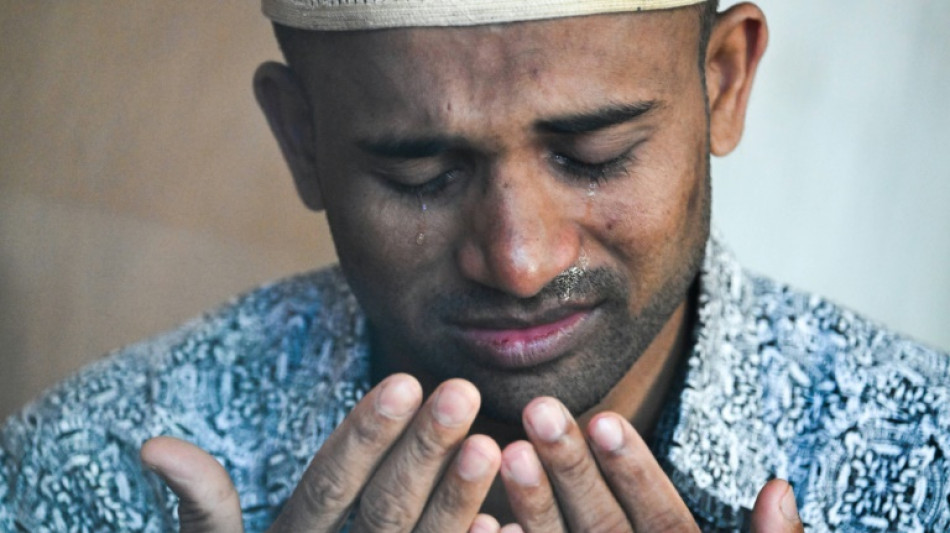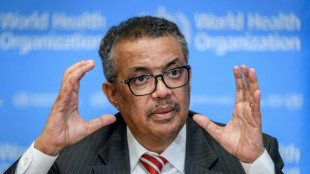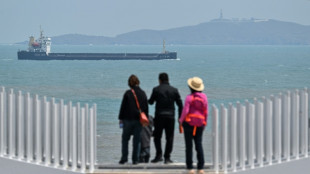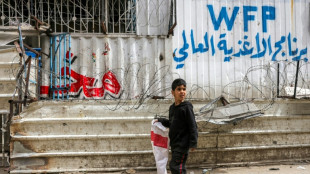

Desperate Rohingya mark Eid in Indonesia limbo
Rohingya refugee Abdul Aziz was in high school when he first fled to Indonesia, but four years on, he remains in limbo, desperately missing home at the start of Eid al-Fitr festivities.
The 19-year-old, and thousands like him, languish at a temporary shelters in the western Aceh province, after escaping squalid conditions in a refugee camp in Bangladesh.
Adding to their plight are sweeping foreign aid cuts by US President Donald Trump, which have heightened fears of a deepening crisis across Asia for the stateless Rohingya, many of whom escaped persecution in Myanmar.
"It's only black in my heart. There is nothing," Aziz told AFP on the first day of the annual Islamic celebration.
Asked how he will celebrate Eid, he said would "only sleep, eat, cry. That's all".
"There (in Myanmar), I had friends. Here, it's not our country. Here is different," he said.
More than a dozen men pray together on mats at a shelter building in Aceh's coastal regency of Pidie, tears rolling down some of their faces.
After speaking to God, they embrace each other, becoming emotional about the fate of their people.
Aziz's wife and child remain with him at the camp but his father and mother have moved from Aceh to Pekanbaru city in Riau province.
He said he will pray for police, migration authorities and "all Indonesian people" who helped the Rohingya with food and clothing after they undertook dangerous sea crossings to seek refuge in Indonesia.
Hundreds of Rohingya there were threatened with cuts by the International Organization for Migration last month because of the US budget slashing, according to a letter seen by AFP.
The aid was promptly reinstated and the US State Department has promised to inject millions in new funds.
But fears for the Rohingya in Indonesia and elsewhere persist because of its biggest provider's wider pullback from its foreign aid commitments.
"We don't expect much from any country or government in the world," said MD Shobbir, 35, a farmer who fled Myanmar when reports of torture began.
"It all depends on Allah's will, and we are fully reliant on that now."
Some of the men get haircuts for Eid and wash together, throwing buckets of water over their heads before the call to prayer rings out at the end of the Islamic fasting month of Ramadan.
Others tried to call their families back home or swept the floors of the shelter on the sombre morning, taking pride in their temporary home.
- No hope -
The Rohingya endured decades of discrimination in Myanmar, where successive governments classified them as illegal immigrants despite their long history in the country.
Around a million members of the persecuted and mostly Muslim minority live in squalid relief camps in Bangladesh, most of whom arrived after fleeing the 2017 military crackdown in neighbouring Myanmar.
Successive aid cuts have already caused severe hardship among Rohingya in the overcrowded settlements, where many rely on aid and suffer from rampant malnutrition.
Many Acehnese are sympathetic to the plight of their fellow Muslims but others reject their presence, claiming the Rohingya consume scarce resources and occasionally come into conflict with locals.
Aid agencies have appealed to Jakarta to accept more, but Indonesia is not a signatory of the UN Refugee Convention and says it is not compelled to take in refugees from Myanmar.
"Eid used to be joyful back home. It was different then. We celebrated to the fullest," said 21-year-old Ruzuan, who goes by one name.
"Yet, we barely survive. No matter where we are, we remain stateless. This reality haunts us."
Shobbir, celebrating his first Eid in Indonesia, says he will pray for the chance to return to Myanmar one day.
"Our thoughts are always with our homeland," he said.
While some are trying to make the best of a bad situation, others see little prospects in their future.
"It's empty. I don't have any hope," said Aziz.
"My hope is only to sleep and eat here."
P.Mathieu--JdB



